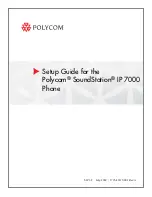
Flexible dialing restrictions and permissions so you can control telephone
activity and phone bills.
Special hospitality features that let Bed-and-Breakfast proprietors, for
example, regulate phone use in guest rooms and schedule wake-up calls
for guests.
Easy-to-use programming procedures, making it simple for you to
manage your system and telephones. System display phones provide
messages and prompts during programming.
Two system-programming extensions, allowing you to program the
system from one extension without interrupting call activity at the other
programming extension—usually the receptionist’s extension.
Modular connections to the control unit, making it easy to reconfigure
your system or to add lines and/or extensions as your business grows.
Direct connections for industry-standard devices—including most
standard phones, fax machines, answering machines, modems, and
credit card scanners.
Optional equipment support, including doorphones, Contact Closure
Adjunct (for example, to release a door lock), loudspeaker paging
systems, music on hold*, call reporting (often referred to as Station
Message Detail Recording or SMDR) devices, auto attendants, extra
alerts, and PC Cards for Backup/Restore or for software upgrades.
System Components
Modular hardware design makes the system easy to install and expand. The
basic system consists of a PARTNER ACS processor module, which supports
three lines and eight extensions. Using these lines and extensions, you can add
various optional devices and telephones to configure your system to meet your
needs. To expand the system to include more lines and extensions, simply
attach additional modules and a carrier to contain them. The term
control unit is
used to refer to the stand-alone PARTNER ACS processor module (or to the
carrier and the modules it contains), since this is the heart of the system. Figure
1-1 shows an example of system components.
WARNING:
There are no customer-serviceable components inside the system
modules or carrier. There are hazardous voltages within that can cause
severe or fatal personal injury. DO NOT OPEN THE MODULES.
*
The performance of music over telephone lines is a public performance under United States Copyright law.
Accordingly, in order for the performance of that music to be lawful, it must be licensed annually to the user
by the copyright owners or their representatives. One way to obtain permission is to contact ASCAP, BMI,
and/or similar performing rights organizations, to obtain a license. Or, you can purchase a Magic on Hold®
system, which includes the required license for the first year. This license must be renewed annually.
Figure 1-1. Sample System Components
!
1-2
Overview
Summary of Contents for PARTNER Advanced Communications System Release 1.0
Page 6: ...iv...













































